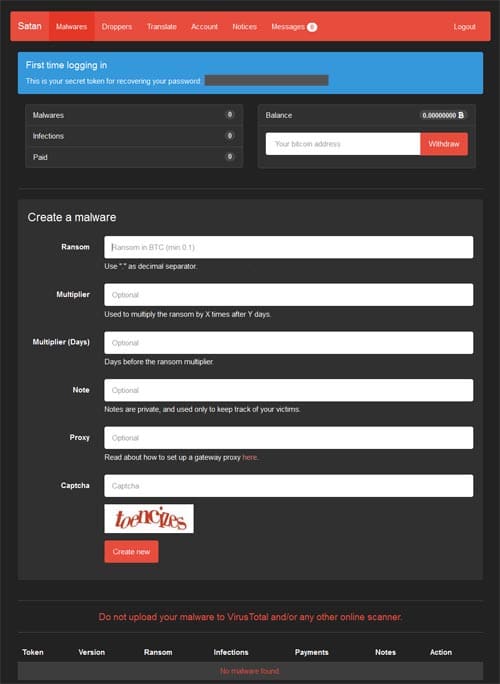It’s official. Criminals have now rolled out “Ransomware-on-Demand”
Ransomware developers have now rolled out a ransomware toolkit that allows others to “hire” it whenever they want to infect their own victims.
We have previously spoken about how the business of ransomware has become so big that it now faces many issues usually encountered by legitimate brands, including providing customer satisfaction and customer service.
Ransomware is that nasty type of malware that – upon infection – will encrypt all your personal files such as images and videos and demand you pay a fine for the decryption key. Often, the encryption is so strong that the decryption key really is the only way of unscrambling your files (which is why it is important to keep up-to-date backups at all times.)
Now we have “ransomware-on-demand” being rolled out that allows non-developers to “hire” a working copy of ransomware whenever they need it. Using the hired ransomware, they can infect victims using their own methods and split their ill-gotten gains with the ransomware developers.
Sponsored Content. Continued below...
The ransomware available to hire is called Satan, a standard industry-type name, and it allows any wannabe-criminal to create an account and customise their very own version of ransomware. Custom options include the fine for victims to unscramble their files (as usual payable in BitCoin) and even a “multiplier” that decides how many days the victim has before having to pay-up before that fine increases.
It also works as a sort of ransomware affiliate program. The developers take a cut of the fines but according to various advertisements, they will reduce their cut the more money a criminal makes with the ransomware.

A screenshot that allows potential ransomware distributors to customise the ransomware.
Available on the so-called “Dark Web” (meaning you’ll need special software to visit it) the Satan ransomware kit even provides helpful tips when it comes to infecting victims, so any would-be criminals will know how to potentially infect people’s computers.
If you get infected with a version of Satan ransomware, it will change the extension of the files it encrypts to .stn and – as typical with ransomware – leaves a note that provides instructions on how to pay the ransom to get your files back.
It’s another worrying development in the world of ransomware. Remember, no matter what version of ransomware is out there, they all use similar methods to infect your computer, so providing you know how to defend yourself against these kinds of threats already, you shouldn’t be seeing Satan ransomware on any of your devices any time soon. Read our tips on avoiding ransomware in our blog post here.
Continued below...
Thanks for reading, we hope this article helped, but before you leave us for greener pastures, please help us out.
We're hoping to be totally ad-free by 2025 - after all, no one likes online adverts, and all they do is get in the way and slow everything down. But of course we still have fees and costs to pay, so please, please consider becoming a Facebook supporter! It costs only 0.99p (~$1.30) a month (you can stop at any time) and ensures we can still keep posting Cybersecurity themed content to help keep our communities safe and scam-free. You can subscribe here
Remember, we're active on social media - so follow us on Facebook, Bluesky, Instagram and X
